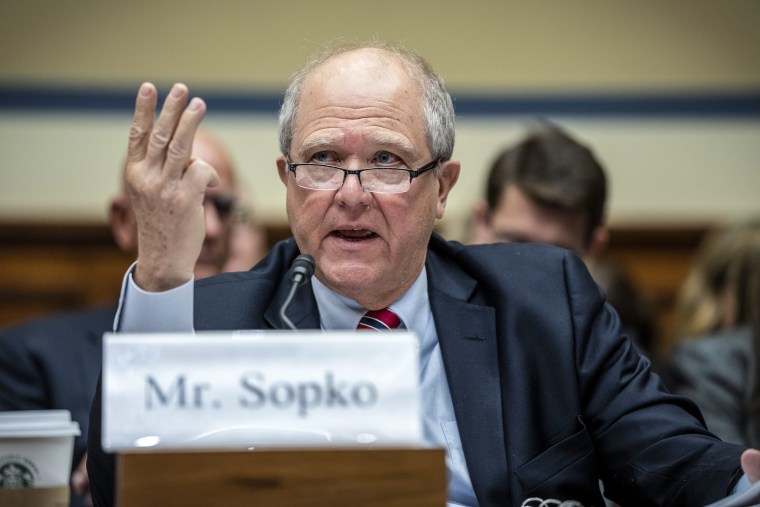The head of the U.S. government watchdog for the war in Afghanistan said Wednesday that the U.S. may have provided billions in taxpayer dollars to the Taliban and Afghan terror groups since the withdrawal of American troops, but even he doesn’t know the full extent of the problem.
"Unfortunately, as I sit here today, I cannot assure you we are not now funding the Taliban," special inspector general for Afghan reconstruction, John Sopko, said at a House Oversight Committee hearing. “Nor can I assure you the Taliban are not diverting it from the intended recipients, which are the Afghan people.”
The special inspector general for Afghan reconstruction, known as SIGAR, was formed in 2008 to monitor the billions of dollars the U.S. was spending in the war against the Taliban.
Sopko told the lawmakers that the State Department’s and the U.S. Agency for International Development’s refusal to provide information to SIGAR — despite what he says is their legal obligation to do so — is making it difficult for the agency to carry out its congressionally mandated oversight role over the aid money still going to Afghanistan.
Sopko said the U.S. has provided or made available to the Afghan people more than $8 billion since the chaotic withdrawal of U.S. troops in August 2021. He asked the lawmakers to help SIGAR get information from the State Department and USAID, which administers civilian foreign aid and receives guidance from the secretary of state.
“We need your support to end their obfuscation and delay," Sopko said. "And I’m sure my fellow inspectors general would agree we cannot abide by a situation in which agencies are allowed to pick and choose what information an IG may receive, who an IG may interview, or what an IG may report on.”
A spokesperson said the State Department "stopped providing assistance for the purpose of the reconstruction of Afghanistan" after the Taliban takeover in 2021.
"We have raised questions related to SIGAR’s jurisdiction with respect to activities after August 2021. Those questions remain unresolved," the spokesperson said.
The State Department spokesperson added that the State Department continues to cooperate with oversight bodies, including congressional committees and agency inspectors general, that have jurisdiction over aid that the U.S. is providing to Afghanistan.
A spokesperson said USAID continually assesses "our activities to ensure both that our assistance is reaching those for which it is intended and that our partners have effective mitigation measures in place to help safeguard against diversion."
"We do not provide funding to the Taliban," the spokesperson added.
Sopko warned that if the Biden administration continues to deny information it will impact oversight of future administrations. “If permitted to continue, it will end SIGAR’s work in Afghanistan but also Congress’ access to independent and credible oversight of any administration."
Sopko has been running SIGAR since 2012, when he was appointed by President Barack Obama, serving under both Democratic and Republican administrations.
In June, Sopko wrote in a letter to Secretary of State Antony Blinken and USAID Administrator Samantha Power that their agencies are “unreasonably refusing to provide information and assistance requested by SIGAR" and that no other administration has ever questioned SIGAR's jurisdiction.
“Inexplicably, this long track record of cooperation seems to have abruptly ended,” Sopko said in the letter. “Agency officials now appear to have adopted a premeditated position of obstruction.”
Biden administration officials argued that the U.S. is no longer involved in reconstruction in Afghanistan, so SIGAR is outside the inspector general’s jurisdiction, officials familiar with the process said at the time.

